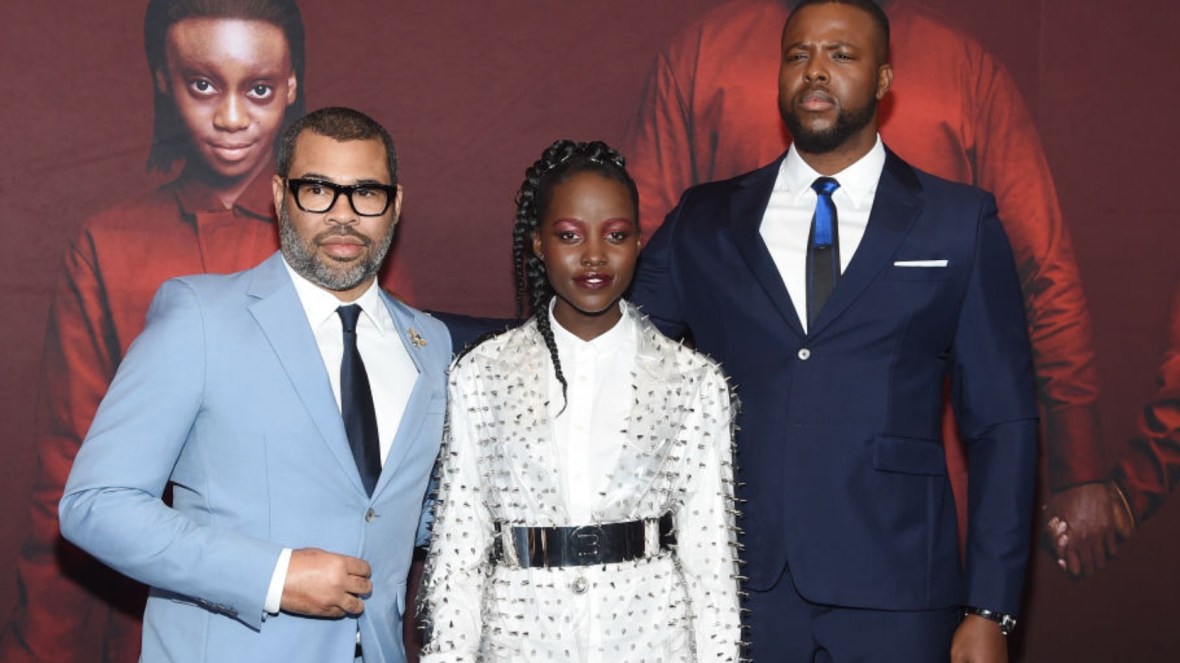How Black horror films are changing the genre forever
NEW YORK, NY – MARCH 19: Jordan Peele, Lupita Nyong’o and Winston Duke attend the “US” premiere at Museum of Modern Art on March 19, 2019 in New York City. (Photo by Jamie McCarthy/Getty Images)
Breaking down how Black horror films are revolutionizing the entertainment industry and making powerful social commentary at the same time.
Black horror has come a long way since the first Black horror film, “Son of Ingagi”, in 1940. While this early movie and others like it have an important place in the genre’s history, there’s no denying that Black horror has evolved from offering cheap thrills and jump scares to becoming a powerful medium for social commentary and change.
A new wave of Black-led horror
Black horror films have enjoyed a resurgence in recent years. And they’re not just about thrills and kills. These films are used as vehicles for racial and social commentary, often in complex or nuanced ways.
One of the most prolific Black horror directors is Jordan Peele. Although he’s widely known for his comedy work in Key & Peele, Peele has carved out a vital new space for himself—and many others—in a genre that has historically lacked Black representation. His visionary work in “Get Out” and “Us” has solidified him as a leading creator in this field. While Peele might be the biggest name, he’s not the only one. There are plenty of Black horror films that deserve your attention.
“Get Out” (2017)
Jordan Peele’s 2017 hit “Get Out” is a milestone in the Black horror genre. Symbolism abounds in “Get Out” as Black man Chris Washington and his white girlfriend, Rose Armitage, experience a trip to her family’s secluded property. Unlike other pieces that deal with overt racism and prejudice, “Get Out” explores the more insidious kind that’s often wrapped up in white well-meaningness.
On the other hand, the auction scene in which Rose’s dad leads an eerily silent bidding war for Chris is an unabashed depiction of the commodification and exploitation of Black bodies. Chris is effectively sold to the highest bidder during a game of bingo that first seems innocuous but then, like systemic oppression, reveals itself to be much more sinister.
“Us” (2019)
Peele’s follow-up to “Get Out” was “Us” in 2019. This work used horror to dissect a myriad of issues, including class, identity and social injustice. When a young girl is confronted with her doppelgängers at a carnival, it sets off a lifetime of haunting that culminates when she returns to the area with her family as an adult. The family is confronted by a group of doppelgängers claiming to be called the Tethered.
The Tethered serves as a metaphor for the underprivileged and forgotten among us. They are identical in every way yet treated as an underclass of citizens deserving of shame and fear. They cannot dictate their own lives, and chaos unfolds during their uprising against their oppressors.
“Nope” (2022)
“Nope” is a horror movie with themes of exploitation in the entertainment industry. Spectacle and consumption are central to this gripping horror that follows a pair of siblings trying to capture footage of a UFO. They know that capturing and monetizing their discovery could be the financial lifeline their ranch needs, but this opens up questions about what it means to commodify the extraordinary for personal gain.
Gordy, the chimpanzee, is another tragic example of exploitation and what happens when beings in captivity are pushed to the limits. His birthday party massacre is a brutal reminder that everyone – even nature – has its breaking point, and it’s best for all not to find out what it is the hard way.
“Nanny” (2022)
“Nanny” is a story about how the American Dream can often turn out to be a nightmare for Black immigrants, written and directed by Nikyatu Jusu, a Sierra Leonean-American filmmaker. The film weaves in West African mythology and the plight of Aisha, a Senegalese immigrant who left everything – including her young son – back home in search of a better life in New York City.
One major theme in “Nanny” is Aisha’s experience as an immigrant. Watching her struggle as an underpaid and overworked domestic employee amplifies the everyday horror many immigrants face. Mami Wata is a water deity in West African tradition and effectively serves as another character in the film. In West African folklore, Mami Wata symbolizes the dual nature of water – its power to buoy or drown its inhabitants.
“The Angry Black Girl and Her Monster” (2023)
This SXSW darling debuted in 2023 and was picked up for streaming distribution later that year. The story reimagines Mary Shelley’s “Frankenstein” with a young, bright girl named Vicaria, played by actress Laya DeLeon Hayes. Systemic violence is ingrained in the film, as her mother and brother are lost to gun violence.
Vicaria is an incredibly smart, hopeful girl, and she believes that she can bring her brother back to life, which can be interpreted as a rejection of the trauma and loss that often shapes young Black lives. When her brother is resurrected, his own violent tendencies force audiences to sit with the way this trauma impacts survivors and perpetuates the cycle of violence so many try to escape.
The future of Black horror films
The success of so many Black horror films proves that this isn’t just a viable genre but one that audiences are eager to support and explore. Fortunately, viewers don’t have too long to wait for the next Black horror film, as director Jordan Peele revealed that he has another project in the works slated for release in 2026.

